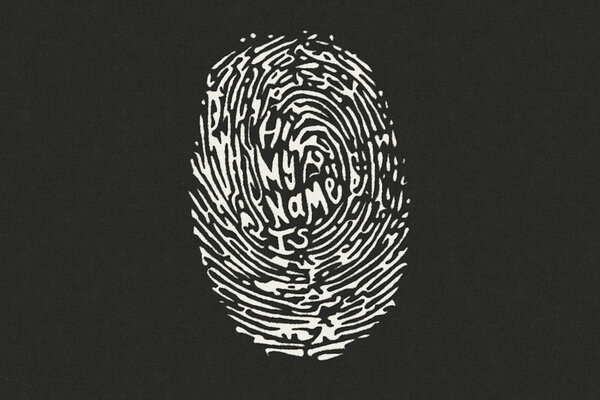All Passcode Voices
 Opinion: How to counter the Kremlin's hacking playbookIn an age of hacking and fake news, governments and private companies must join forces to stop Russian disinformation.
Opinion: How to counter the Kremlin's hacking playbookIn an age of hacking and fake news, governments and private companies must join forces to stop Russian disinformation. Want to fix cybersecurity? Think about worst-case scenarios firstScenario thinking sketches out future cybersecurity problems and helps policymakers begin addressing tomorrow's digital dilemmas.
Want to fix cybersecurity? Think about worst-case scenarios firstScenario thinking sketches out future cybersecurity problems and helps policymakers begin addressing tomorrow's digital dilemmas. Industrial control systems: The holy grail of cyberwarRegulators and utility industry leaders need to wake up to the risks that could let malicious hackers cause widespread physical damage to the grid and other critical infrastructure.
Industrial control systems: The holy grail of cyberwarRegulators and utility industry leaders need to wake up to the risks that could let malicious hackers cause widespread physical damage to the grid and other critical infrastructure. How to reform the outdated federal anti-hacking lawThe more than 30-year-old Computer Fraud and Abuse Act carries overly harsh penalties for trivial digital transgressions – and it needs to be completely overhauled (or abolished altogether).
How to reform the outdated federal anti-hacking lawThe more than 30-year-old Computer Fraud and Abuse Act carries overly harsh penalties for trivial digital transgressions – and it needs to be completely overhauled (or abolished altogether). How technology tramples on freedomRapid advances in biometric technology mean the public is surveilled – and their movements recorded – more than ever before. If this technology spreads without limits, it could soon impinge on basic rights.
How technology tramples on freedomRapid advances in biometric technology mean the public is surveilled – and their movements recorded – more than ever before. If this technology spreads without limits, it could soon impinge on basic rights. A hacker's guide to fixing automotive cybersecurityThe security researcher known for hacking a 2014 Jeep Cherokee, leading to a 1.4 million-vehicle recall, outlines how automakers can keep connected cars safe from cyberattacks.
A hacker's guide to fixing automotive cybersecurityThe security researcher known for hacking a 2014 Jeep Cherokee, leading to a 1.4 million-vehicle recall, outlines how automakers can keep connected cars safe from cyberattacks. How China is preparing for cyberwarThe US and China have made progress on curbing commercial cyberespionage. Now, the global powers need to set limits when it comes to digital warfare.
How China is preparing for cyberwarThe US and China have made progress on curbing commercial cyberespionage. Now, the global powers need to set limits when it comes to digital warfare. What it'll take to forge peace in cyberspaceThe international community has finally started a serious conversation about norms in cyberspace. But reaching a global consensus needs the world's attention.
What it'll take to forge peace in cyberspaceThe international community has finally started a serious conversation about norms in cyberspace. But reaching a global consensus needs the world's attention. You'll never shop alone againIn virtual and physical stores, retailers are tracking customers' buying habits, biometric information, and personal preferences. And few consumers even know they are being watched.
You'll never shop alone againIn virtual and physical stores, retailers are tracking customers' buying habits, biometric information, and personal preferences. And few consumers even know they are being watched. Opinion: It's time for us geeks to stand up and be heardToo often computer scientists are left out of public debates about computer science.
Opinion: It's time for us geeks to stand up and be heardToo often computer scientists are left out of public debates about computer science. Opinion: No, Russia didn't hack the electionMoscow carried out a digital campaign to disrupt our democracy, but did not change vote counts. That's a key distinction because the US needs to accurately identify weaknesses to sharpen national cyberdefenses.
Opinion: No, Russia didn't hack the electionMoscow carried out a digital campaign to disrupt our democracy, but did not change vote counts. That's a key distinction because the US needs to accurately identify weaknesses to sharpen national cyberdefenses. Opinion: The tech behind Bitcoin could reinvent cybersecurityBlockchains track, record, and secure transactions made within the virtual currency Bitcoin. They can also help defend many critical systems from devastating cyberattacks.
Opinion: The tech behind Bitcoin could reinvent cybersecurityBlockchains track, record, and secure transactions made within the virtual currency Bitcoin. They can also help defend many critical systems from devastating cyberattacks. Opinion: Will Trump sink Privacy Shield?If Trump walks back US surveillance reform, he could jeopardize a trade agreement with the European Union that ensures the free flow of data across the Atlantic.
Opinion: Will Trump sink Privacy Shield?If Trump walks back US surveillance reform, he could jeopardize a trade agreement with the European Union that ensures the free flow of data across the Atlantic. Opinion: The Senate should pass the Email Privacy Act without delayThe Senate must step up to pass this desperately needed legislation that restores the privacy rights of all Americans in the Digital Age.
Opinion: The Senate should pass the Email Privacy Act without delayThe Senate must step up to pass this desperately needed legislation that restores the privacy rights of all Americans in the Digital Age. Opinion: How to build public trust in our data-powered universeThe weaponization of data at the micro level is a serious challenge. Don't let the era of Big Data give way to a future of Bad Data.
Opinion: How to build public trust in our data-powered universeThe weaponization of data at the micro level is a serious challenge. Don't let the era of Big Data give way to a future of Bad Data. Opinion: The trouble with Trump's Russia resetUntil Russia backs away from a strategy of digital attacks – coupled with physical strikes – and spreading disinformation to undercut democracy, the pursuit of better relations with Putin is a mistake.
Opinion: The trouble with Trump's Russia resetUntil Russia backs away from a strategy of digital attacks – coupled with physical strikes – and spreading disinformation to undercut democracy, the pursuit of better relations with Putin is a mistake. Opinion: How to have a FUD-free RSA ConferenceThe key to a productive RSA Conference, the massive cybersecurity gathering that kicks off next week in San Francisco, is avoiding firms that push fear, uncertainty, and doubt.
Opinion: How to have a FUD-free RSA ConferenceThe key to a productive RSA Conference, the massive cybersecurity gathering that kicks off next week in San Francisco, is avoiding firms that push fear, uncertainty, and doubt. Does the health data industry prioritize profits or patients?In his new book about medical privacy, Adam Tanner argues patients are in the dark about a multibillion dollar industry that profits from their medical records.
Does the health data industry prioritize profits or patients?In his new book about medical privacy, Adam Tanner argues patients are in the dark about a multibillion dollar industry that profits from their medical records. Opinion: Obama's surveillance legacyJust two days after his Jan. 10 farewell speech, the Obama administration granted sweeping surveillance powers to the incoming Trump presidency – dramatically expanding 17 government agencies legal authority to spy on US citizens.
Opinion: Obama's surveillance legacyJust two days after his Jan. 10 farewell speech, the Obama administration granted sweeping surveillance powers to the incoming Trump presidency – dramatically expanding 17 government agencies legal authority to spy on US citizens. Opinion: Trump’s internet opportunityInstead of adding to hostilities toward internet freedom, Trump has a chance to help safeguard digital liberties. That means crafting a cybersecurity policy in his first 100 days to reinforce appropriate behavior in cyberspace.
Opinion: Trump’s internet opportunityInstead of adding to hostilities toward internet freedom, Trump has a chance to help safeguard digital liberties. That means crafting a cybersecurity policy in his first 100 days to reinforce appropriate behavior in cyberspace.



